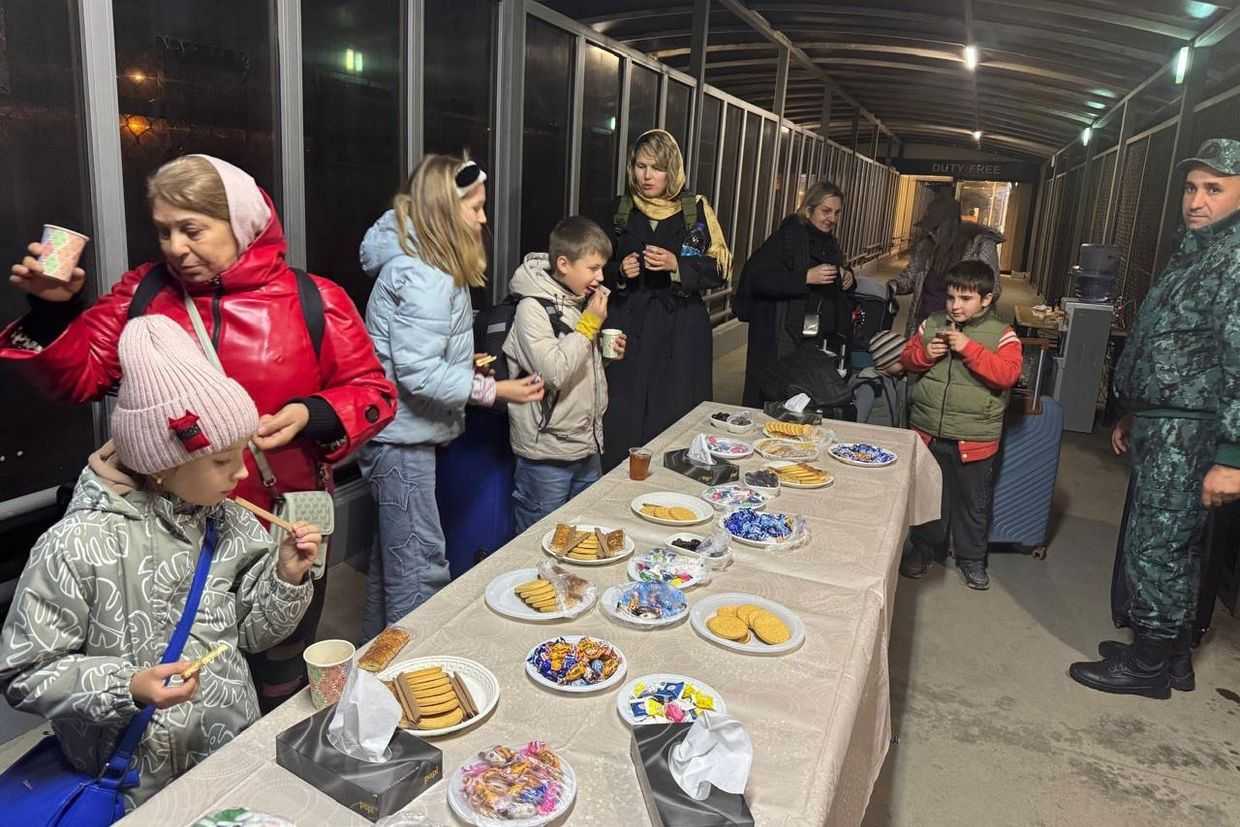
Officials in Baku and Yerevan have remained largely silent about Russian President Vladimir Putin’s recognition of the independence of the separatist governments in Ukraine’s regions of Donetsk and Luhansk.
Putin recognised the sovereignty of the separatist regions on Monday.
Neither Azerbaijani President Ilham Aliyev nor Armenian Prime Minister Nikol Pashinyan gave statements on the matter. Aliyev’s silence was particularly loud, given his meeting with Putin on Tuesday — and his subsequent signing of a ‘Declaration on Allied Interaction’.
[Read also on OC Media: Georgia raises the spectre of 2008 following Donetsk and Luhansk recognition]
Ostensibly, the meeting was held to commemorate the 30th anniversary of Azerbaijan’s diplomatic relations with the Russian Federation.
In a partial transcript of the discussion published on the official Kremlin website, Putin is quoted stressing the importance of ‘developing trade and economic ties and unblocking transport communications’ between Armenia and Azerbaijan following the Second Nagorno-Karabakh War.
He also appeared to try to reassure Aliyev that the recognition of the separatist governments in Ukraine was not part of a broader Russian imperial revanchism.
‘I want to say right away: we see and foresaw, one might say, speculation on this topic — on the topic that Russia is going to restore the empire within the imperial borders’, Putin told Aliyev. ‘This is absolutely not true’.
He then cited the deployment and quick withdrawal of the Russian-led CSTO mission to Kazakhstan, as evidence of Russia’s support for the sovereignty of its neighbours.
‘Ukraine is different, and this is due to the fact that, unfortunately, the territory of this country is used by third countries to create threats against the Russian Federation itself’, he said.
Aliyev in turn, refrained from even mentioning Donetsk, Luhansk, and Ukraine in general. Instead, he praised the development of ‘trade and economic ties’ between Russia and Azerbaijan and for Russia ‘resolving humanitarian issues’ that are ‘important’ for Azerbaijan. He did not specify what the ‘issues’ were.
The full text of the agreement of the ‘Declaration on Allied Interaction’ has not yet been made public.
Armenian authorities have remained silent on the topic so far. On Monday evening, the Russian president invited Armenian Prime Minister Nikol Pashinyan to pay an ‘official visit’ to Moscow ‘in spring’, which Pashinyan accepted.
The opposition
Unlike the government, some members of Azerbaijan’s opposition voiced trenchant criticism of the Kremlin’s actions.
‘Russia has recognised the “toy republics” established in the sovereign territories of Ukraine as independent states’, Ali Karimli, chair of the Popular Front Party of Azerbaijan, said in a statement. ‘Azerbaijan must continue to recognise Donetsk and Luhansk as Ukrainian territory.’
Others, meanwhile, focused on the impact the recognition of the Donetsk and Luhansk might have on the Nagorno-Karabakh conflict.
[Read on OC Media: Abkhazia, South Ossetia, and Nagorno-Karabakh hail Donbas recognition]
Elman Nasirov, a member of the parliamentary committee on international relations and interparliamentary relations, told Turan that he believed ‘Russia’s current position’ towards the separatist regions of Ukraine did not have any relevance for their position on Nagorno-Karabakh.
‘Armenian separatists in Karabakh want to draw certain parallels, but their efforts are in vain’, he said. ‘Russia recognised the independence of the so-called republics of South Ossetia and Abkhazia. Then the Armenian separatists rejoiced. But the result was that these issues were not projected on Karabakh.’
Like the government, Armenia’s parliamentary opposition, which has been vocally pro-Russian, also remained silent on Putin’s recognition.









